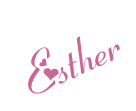 Have you ever read or heard something and gone "(S)he said WHAT?"? I have. Sometimes I end up laughing at the statement that caused me to have that reaction, sometimes it makes me sad, and sometimes it makes me angry. Whichever the case may be, I usually have something like this look on my face (that's my youngest baby, by the way, isn't he absolutely freaking adorableness incarnate? He melts me).
Have you ever read or heard something and gone "(S)he said WHAT?"? I have. Sometimes I end up laughing at the statement that caused me to have that reaction, sometimes it makes me sad, and sometimes it makes me angry. Whichever the case may be, I usually have something like this look on my face (that's my youngest baby, by the way, isn't he absolutely freaking adorableness incarnate? He melts me). On today's installment of the "This so-called disease" series, let's talk about one of those moments that was captured in print. Prepare yourself, it's a doozy.
"You are too young, too smart not to reply on this type of medication".
If I'm being totally honest, I have to admit that it's really really REALLY hard for me not to stoop to insulting this person for the fact that they totally flubbed their comments. Why is it hard not to go to that level?
Because this comment flat out hurts. It HURTS. A lot. It hurts me personally. Why? On earth does it hurt me personally? It wasn't directed at me, the commenter was addressing the person who posted the status. It's not like the commenter called me stupid or anything so why get riled up about it? Why take it personally?
Because they DID call me stupid. They did insult me personally. Not only did they insult me, they insulted every other person who has chosen to take antidepressants. It sucks, it hurts, and it makes me angry.
Whether they realize it or not, what this statement says is that people who choose to take antidepressants are not smart. It says that it's a stupid choice. It says that taking " this type of medication" is not a wise decision.
Why is it stupid? Why is it smarter to not take medication? For some people, prayer isn't enough, yoga doesn't do the trick, diet change doesn't change the state of their/our mental and emotional health, and changing how they/we think doesn't change the fact that they/we have Postpartum Depression, Postpartum OCD, etc. Those things work for some people and that's fantastic, it really is. I am truly and genuinely happy for those who can navigate the treacherous waters of PPMD without medication as their compass. Therapies that don't involve medication are perfectly legitimate and work very well for some people. That doesn't mean that those of us who need to take medication are choosing a treatment plan that is any less valid.
After my first kiddo was born, I went several months without medication. I spent that time praying that I would feel better and that God would "fix whatever is wrong with me". I tried to just make up my mind to be happy. I struggled. I fought. I tried to make it without medication, without talking to doctors, without saying "I need help". I tried to do it the "smart" way. You know what that got me? A trip to the ER followed by two separate inpatient stays at a psychiatric hospital because I let it go so long that I became a danger to myself and wound up at the top of the stiars thinking about throwing myself down them and then went and pondered over-dosing on pain medication.
Is it smart to suffer just so you can say you're not taking medication? Is it smart to risk ending up dead by your own hand in the name of no taking antidepressants? Does it somehow make you a better person to choose to go the drug-free route when you NEED medication, all so you can say you're making the "smart" choice? Does it make you a better mother, wife, friend, daughter, sister, whatever, to suffer in the name of refusing medication because it's stupid?
NO.
Let me say that again, in case there's any doubt. NO. A thousand times NO. Not just NO, but a big, gigantic, humongous HELL NO. And yes, that is me shouting over the internet.
If you can treat and manage your depression without the use of medication, awesome. I've had friends who were able to go that route, and did very well with it. But for me, that didn't help. It didn't make me a better anything (other than better at sitting in a rocking chair like a zombie, better at snapping at my husband, better at avoiding the stairs thanks to intrusive thoughts, better at coming up with excuses to stay home, etc., and none of those are things I would really consider "betters" to brag about). It only made me more miserable for longer.
Whatever route you take in treating your illness, don't feel like it's stupid. If it works for you, if it helps you, that's what matters. You have to do what is best for you, your baby, your family. Don't believe this kind of crap. Don't let yourself feel inferior for choosing medication, or for choosing a non-medication route. What is important is that you're taking care of yourself. As long as you're not hurting yourself or someone else in the process, don't worry about the "how" as much as focusing on the "what" of getting better.
I'm not stupid. You're not stupid. We rock. Don't let anyone tell you otherwise. <3 p="p">






